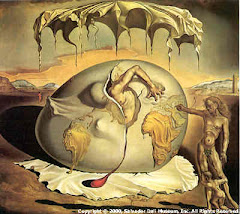תיקון עולם
The Meaning of Tikkun Olam
The Hebrew words transliterated as "tikkun olam,"which mean to heal (or repair) the world, have become something of a buzzword in progressive Jewish thought in recent years. They have come to signify virtually any good deed or action that one thinks might be beneficial to the world in some way.But this broad meaning, empty of specific moral and religious content, is troublesome because it does not adequately capture the historic meaning and origins of the term in Jewish thought. Rabbi Jill Jacobs has attempted to remedy this problem by proposing that the deeper meaning of this term weaves together four distinct historical strands of meaning. (Jacobs, Jill. "The History Of "Tikkun Olam"." Zeek, June 2007).
The first strand refers to the mystical idea from the Kabbalah of removing impurities from the world that impede the full manifestation of divine presence; the second implies the establishment of a sustainable physical world; the third argues for reforming untenable laws and structures of power that produce social injustices and oppressions, and the fourth draws on the Lurianic belief that a individual’s actions can affect the fate of the cosmos.
Drawing on these four strands of meaning, Jacobs proposes that “tikkun olam” means the process of fixing large social and environmental problems through the belief that our individual actions can have a positive effect on the material and the spiritual worlds. Large social problems that affect humanity include problems such as poverty, discrimination, social injustice, human rights abuses, and disease. The large environmental problems of the present time include those that affect the well-being of the physical world and that of other living things, such as global warming, deforestation, species extinction, depletion of natural resources, destruction of wilderness, and so on. The idea that ties these two together is the idea that human actions can affect these large scale issues in a positive way, and that by acting in this way, human beings can act so as to repair the world, even if the things they do are only a “small fix” to a much larger problem. By applying human thought, imagination, and caring to the world, we act as "co-creators" of the world. The idea of repairing the world reminds us of our shared social and environmental responsibilities. Tikkun olam signifies a universal moral responsibility borne by all moral agents to cooperate in sustaining and repairing the social and physical environments we all occupy.





No comments:
Post a Comment